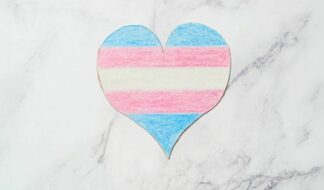By Jack VanHecke
DETROIT-
Sixty people met at the Ecumenical Theological Seminary in Detroit to take part in a series of discussions about the experiences of black LGBTs in church on March 16. The series, titled "Don't Ask, Don't Tell: The Unspoken Policy in the Black Church," is hosted by Agape Life Ministries and led by the Rev. Darlene Franklin. Among the speakers and facilitators were Assistant Pastor Glenda Wyatt-Franklin and Detroit City Council President Charles Pugh.
"We are not here to debate about what the Bible says or does not say about homosexuality," Pugh said to the audience, "but rather to discuss the reality and presence of LGBT people in the black church."
That presence is often ignored or discriminated against, Wyatt-Franklin explained. "LGBT people are excluded from singles ministry, couples retreats, relationship counseling, and not recognized at (funerals after) the death of a partner."
These unspoken policies lead LGBTs to feel "condemned or quietly tolerated," Wyatt-Franklin said. "LGBT people remain silent to avoid embarrassment."
At worst, she said, they can feel like they're "not allowed full access to the love of God."
The evening also featured group discussions on questions such as: What does it mean to be an open and affirming church? Are there any mainstream black churches that are open and affirming? Why do black LGBTs stay in their churches if they feel condemned?
After 30 minutes of discussion, each group reported out to the larger audience. Some groups said being an open church means letting LGBT people be "full" members and accepting LGBT families. Members of the audience pointed out that even mainstream black churches that may appear to be open and affirming do not have written policies on fully including LGBT members.
Wyatt-Franklin, quoting United Church of Christ guidelines, said an open and affirming church is one that "has publicly declared that all orientations are welcome in its full life and ministry."
After leading a final discussion on the status quo and how to affect change, Charles Pugh remarked on the need for individual action. "I believe the power of one is real. We should step out – come out – you may be surprised by the reaction you don't get."
"How can LGBT people help change the church?" Wyatt-Franklin asked. "Embrace yourself, start a dialogue between LGBT and straight people in your own congregation, regularly associate with people and organizations that embrace you and learn what the Bible says and doesn't say about homosexuality."
"LGBT folks should stand up for your own spiritual inheritance that Christ died for," Rev. Franklin encouraged the audience. "Then there will be change."
The series will continue in April and May with discussions on domestic violence, coming out in the mainstream church, the exclusion of transgender people in church and attitudes toward gay marriage. More information on the discussion series can be found at http://www.agapespiritlifeministries.org.









